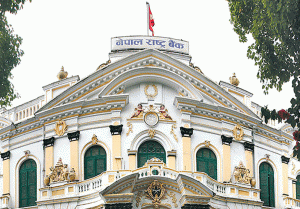
Op-ed pages of broadsheet dailies, both Nepali and English, have given space to a host of issues on Friday. While Prime Minister Deuba’s visit to Delhi and its implications are still the talk of the town, the Untied States’ new South Asia policy and the report on constituency delineation have received the attention of editors.
The implications of CDC report

The government-formed constituency delineation commission has recently submitted its report to Prime Minister Sher Bahadur Deuba. The authors of the report have divided the country into 165 constituencies for the election of the federal parliament. In this context, Surya Prasad Shrestha, in his lead article for Annapurna Post, says even the Madheshi parties should not have any reservations about the new constituencies. He says that the commission was under pressure to deliver its report within a short span of time. He says that the commission gave 10 per cent weight to geography and 90 per cent weight to population, but that should not be a reason for any party to reject the report.
The US policy on South Asia

US President Donald Trump recently delivered his policy speech on the Indian Sub-continent, titled ‘Afghanistan and South Asia’ in which he underlined his government’s policy to send more troops to Afghanistan. In this context, Achyut Wagle in his lead article for The Kathmandu Post, says the speech marks a departure for US foreign policy for South Asia in many ways. He says that Washington has now shifted its pivot from New Delhi to Afghanistan, where it wants to make its presence felt. It gives an indication that the US no longer looks at South Asia through the Indian prism. Similarly, US policy is now concentrated on ‘fighting terrorists’ rather than building democracies.
The hidden agenda of the policy change could be to increase military presence in Afghanistan, which shares part of its borders with China as the two countries battle for influence in South Asia. This policy change has already shown some implications in Nepal as the US Embassy in Kathmandu retreats to talk less about democracy and more about entrepreneurship and some humanitarian assistance. Wagle says that the US wants to use Nepal’s proximity with Tibet more strategically, and this could have deeper implications on US policy on Nepal.
Deuba in Delhi

Prime Minister Sher Bahadur Deuba has already returned home from his visit to New Delhi, but the achievements of the trip still remain under scrutiny. Dhruba Kumar, in his lead article for Kantipur, says Deuba’s visit failed to address five key pressing concerns: 1) the issue of Nepali gas bullets stranded in India 2) the issue of waiver of money due in arms sales agreement 3) Pancheswor Multi-purpose project 4) dams built by India 5) India’s stance on Nepal’s constitution.
Are trade unions really representative?

Former Chief Justice Sushila Karki, in her article for Kantipur, says trade unions do not advocate for the interest of the workers, they have become puppets in the hands of the leaders to fulfill their vested interests.
























